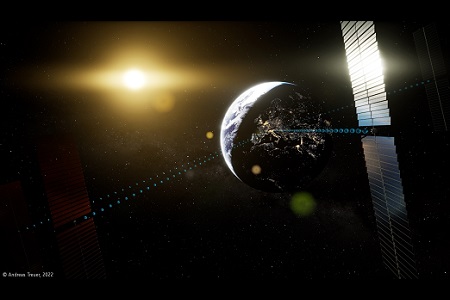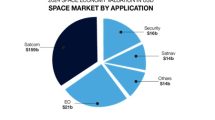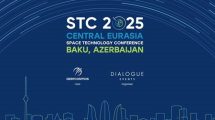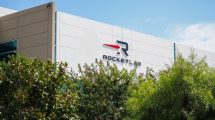
European Space Agency (ESA) has selected Thales Alenia Space to conduct a feasibility study for the Solaris initiative, which will determine the viability of a project to provide clean energy from spaceborne solar power plants to meet requirements down on Earth.
Europe is targeting net zero emissions from greenhouse gases by 2050. To achieve this ambitious goal, Europe’s energy industry has to call on renewable, controllable and affordable energy sources, available worldwide. Solar energy from space is a promising solution to meet this need.
Thales Alenia Space is leading a consortium to come up with an ambitious solution for Europe: “harvesting” solar energy in orbit, where it’s available without having to worry about the weather or nighttime, then send it back down to Earth. The Solaris studies should allow Europe to make an informed decision by 2025 on whether or not to embark on a development programme for the commercialisation of space-based solar energy, with an initial objective of designing a small-scale in-orbit demonstrator.
Solaris was supported at ESA’s Ministerial Council in November 2022, with the aim of making Europe a key player, and possibly a leader, in the international race to develop clean and sustainable energy solutions to attenuate human-caused global warming. Thales Alenia Space will lead this feasibility study, which aims to develop new concepts for a system to provide solar energy from space, with enabling technologies including high-efficiency space solar panels, wireless power transmission and robotised assembly in orbit. These studies will guide the follow-on research & development activities.
The space solar power concept complements renewable energy sources on Earth, rather than competing with them, because solar power from space is available 24/7, thus ensuring electrical supply continuity without the need for significant storage systems.
The European consortium handling these studies offers a wide array of complementary areas of expertise, spanning orbital systems (Thales Alenia Space), aviation (Dassault Aviation), strategic consulting (Arthur D. Little) and above all energy (Engie, ENEL, Air Liquide), clearly illustrating the project’s strong potential for the global energy industry.












Add Comment